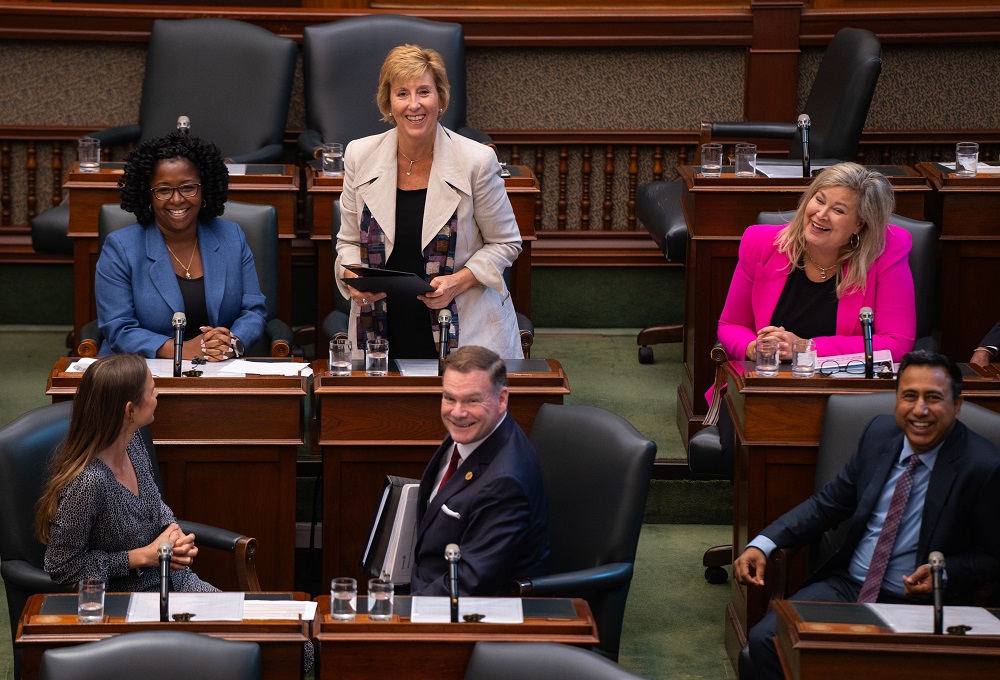Haliburton-Kawartha Lakes-Brock MPP Laurie Scott has tabled a new private member’s bill at Queen’s Park seeking to prevent convicted sex offenders from legally changing their names in Ontario.
The local politician brought the legislation forward Oct. 19 as a joint endeavour with Thornhill MPP Laura Smith. It will be brought back for second reading Nov. 14. If passed, it will stop convicted offenders under Christopher’s Law from securing new identities at any time in the future.
“We need to eliminate the opportunity for sexual offenders to sever the tie between their criminal past and their current identity,” Scott said. “To sexually assault another human being is a violating deed, not only physically, but psychologically and emotionally. Sexual assault can have profound implications beyond the initial attack. The effects can linger for years.
“We want to close this loophole, like other provinces have, so that sexual offenders are not given the chance to hide their criminal past. These victims deserve to know their attacker will not be able to escape the accountability,” Scott added.
The bill was initially introduced by former Scarborough Centre MPP Christina Mitas in 2021, but a decision on its implementation was delayed until after the 2022 provincial election. Mitas was not re-elected, so Scott and Smith picked up where she left off.
The local MPP said she has spent 12 months consulting with fellow politicians, government agencies and other stakeholders to reshape the bill. She said it’s something MPPs across all parties have expressed interest in supporting.
She noted that, today, there are no obstacles for offenders seeking to change their name, noting some choose to do so before leaving jail.
“This makes it easier for them to conduct further harm against unsuspecting communities – we want to prevent this possibility,” Scott said.
She noted recent reports released by Statistics Canada suggest a visible upward trend in the number of sexual assaults, especially against children, in recent years. People with a prior sexual offence conviction are more likely to re-offend, Scott noted, pegging the recidivism rate at around 35 per cent.
“These are people that are charged with sexual abuse against children. These are people who have violated another human being in a way that has altered the life of the victim forever,” Scott said. “We will always stand up for victims and survivors to make sure that an offender’s rights are not held above their own.”
Following second reading, the bill will go to review by committee where public hearings may be held and amendments considered. A report will then be submitted to the house and brought back for third reading. Should it be approved, it will be sent to the lieutenant governor for signing, where it will become law.
Scott said she hopes to see the bill formally adopted in the new year.





